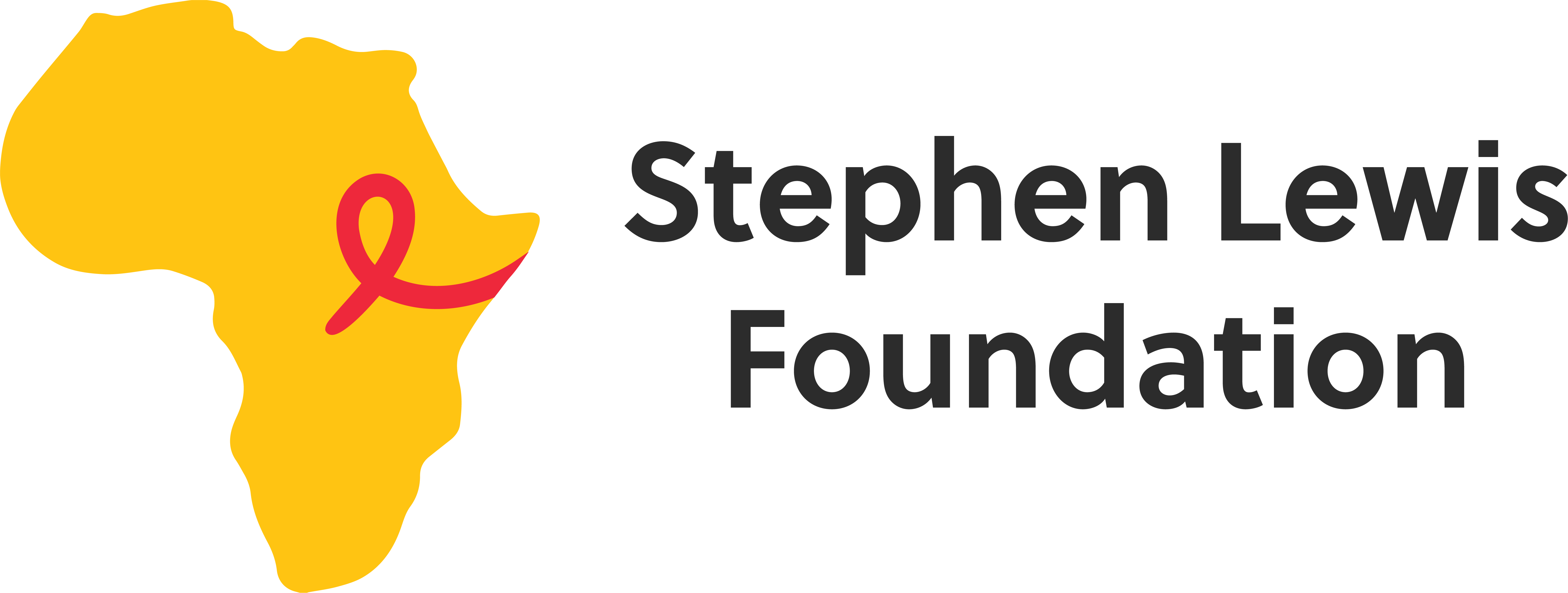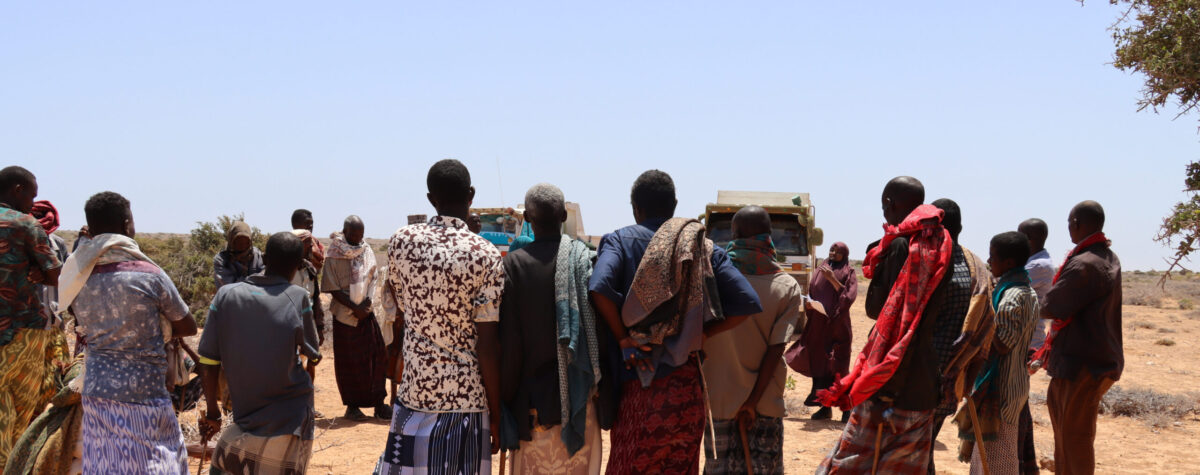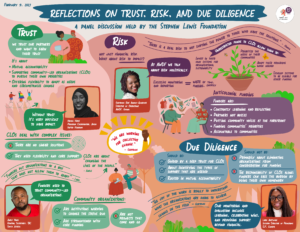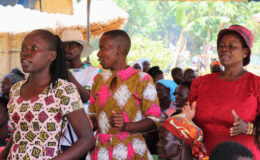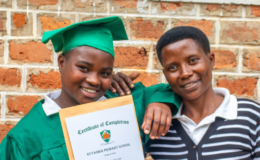International leaders share their experiences shifting power to communities
In the spheres of international development and philanthropy, there’s an increasing consensus that to build a more just and equal world we must shift power and resources into the hands of community-led organizations.
But this belief is often met with resistance from donor governments and other funders who question how to put the philosophy into practice. Their fear is rooted in colonial ideas about trust, risk, and due diligence that privilege top-down approaches to development.
To confront these myths, and present ideas for a way forward, the Stephen Lewis Foundation convened an international panel of leaders to share their experience in challenging well-established development and humanitarian practices that prevent us from truly shifting power.
The discussion was held during Global Affairs Canada’s 2023 International Development Week, a Canadian tradition that shines a spotlight on Canadians’ contributions to a more peaceful, inclusive and prosperous world. During this week of reflection on the role of civil society, private and philanthropic sectors, and governments in supporting the UN Sustainable Development Goals, our guests challenged all members of the development community to chart a path forward for justice and equality.
Traditional power structures limit communities
Our speakers agreed that traditional power dynamics between funders and grantees take away autonomy from organizations that are embedded in communities and getting the work done. When local organizations aren’t seen as capable and trustworthy, it’s communities in the Global South who suffer.
Onerous due diligence structures make it difficult for effective, knowledgeable organizations to access funds. Decades of this top-down colonial approach to aid have caused problematic dependences and leave communities in the same, if not worse position.
When a community’s needs don’t match a funder’s priorities, organizations are forced to put themselves in a box of data collection and reporting that doesn’t actually reflect the impact of the work. Funds meant to improve people’s lives end up being used to meet monitoring and evaluation structures that are unnecessary and irrelevant. While funders often consider risk in financial terms, they ignore the real risk to people’s lives that happens when funding doesn’t land in communities’ hands.
Watch highlights from the discussion:
Solutions include flexibility, respecting expertise, and unrestricted funding
Funding flexibly is a recognition that communities are working hard to eradicate complex problems that don’t have linear solutions. Unrestricted funds not tied to any specific program offer the most flexibility, and allow community experts to adapt to changing environments.
Organizations themselves require support for core costs such as staff and internal systems. Without these building blocks, they can’t properly work with communities they are meant to serve. Organizations are not one-off projects, and require support to build a sustainable infrastructure, meet their communities’ needs, and adapt to new pandemics and crises.
Centuries of resource extraction, colonialism, and imperialism mean that governments and donors in the Global North are often in the position to grant funds. There is a moral imperative that they do so in a way that returns resources and power to communities. Funders must approach their work with humility and continually reflect on how they can decolonize their grantmaking.
When funders operate as partners to community organizations, rather than their bosses, there is room for knowledge sharing and transformative impact. They can create and realize goals together, celebrate achievements, and share the joy that comes from community-led organizations’ life-changing work.
